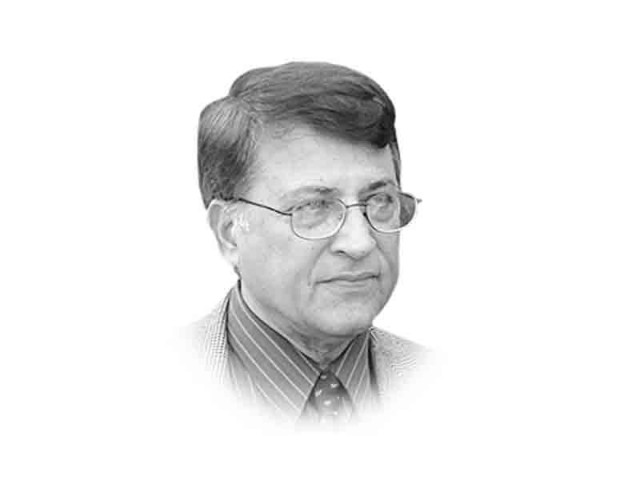Let’s stop promoting corruption in Pakistan’s universities
The current assessment and incentive scheme has bred a rat race for fake publications and supervision of junk theses.

The writer is a retired professor of physics from Quaid-e-Azam University, Islamabad
Thankfully, no such experiment has actually been performed in the police department. But in Pakistan’s higher education sector, something closely similar has been in progress since 2002-2003 under a ‘revolutionary’ policy conceived by Dr Attaur Rahman, and implemented by the Pakistan Council of Science and Technology as well as the Higher Education Commission (HEC). Pay and promotion for professors became contingent on the numbers of research papers published and the numbers of PhD and MPhil students supervised. Only the ‘kill count’ mattered. Soon it became clear that university teachers had roughly the same moral and ethical standards possessed by our policemen, politicians, generals and shopkeepers.
With no change in the quality of the actual researchers, Pakistan’s universities started to produce a bumper crop of ‘research articles’ year after year. The HEC trumpeted its success as professors ratcheted up publications and PhD and MPhil students. This was only possible because many university teachers engaged in wholesale plagiarism, faked data and produced research that no one seems to have any use for. As academic ethics went into free fall, university administrators and the HEC turned a blind eye. The new policy — which required learning how to play the numbers game — had the effect of turning many professors into crooks and thieves.
Take the case of Dr X, a professor of biological sciences at Quaid-e-Azam University (QAU), who had been caught red-handed forging the confidential external thesis evaluations of the PhD students he had been supervising. The forged evaluations were then passed off as written by scholars from Canadian and American universities. The subterfuge even included sending the fake student evaluations through Canadian postal mail via an acquaintance. Despite his admission of guilt, X was not terminated. The QAU administration simply shrugged it off. X took early retirement and moved to become dean at another university. Currently, he is vice chancellor of a university in Wah.
Dr Y followed a similar trajectory. A professor at Punjab University (PU), he became renowned for producing a research paper every couple of weeks and soon clocked up a few hundred publications. It turned out that all these articles were reproductions of papers already existing on the internet. When the scandal eventually broke, the PU did not dismiss him. Taking early retirement, Y moved on and became dean at another university. There, he spent his time putting together a book with chapters stolen from great scientists of the 20th century. Once this wholesale plagiarism was exposed, a second early retirement quickly followed. But, wonder of wonders, Y is now vice chancellor of a university in Lahore!
If these were isolated examples of academic dishonesty, they could be easily dismissed. But the cancer of corruption has metastasised and spread to almost every department of every university. Social taboos on plagiarism and fake research do not exist; while a man can easily get beaten into pulp for inadvertent minor offences, stealing the work of others excites no passions and only cursory interest.
An intrepid researcher, Dr Isa Daudpota, has documented many more cases of outright fraud than is possible for me to comment upon here. Patiently tracking down fly-by-night journals, both national and international, he finds that any ‘research’ can be published — for a price. One professor — let us call him Dr Z — recently received the Pride of Performance Award from the Government of Pakistan. Sarcastically referred to by Daudpota as ‘Pakistan’s Euler’, he has been publishing one mathematics paper every week, year after year. A mass of evidence exists that Z is a cheat. Daudpota has demanded that the authorities investigate but his complaint will be just more water splashing off a duck’s back.
As the X, Y, Z cases indicate, the current assessment and incentive scheme is thoroughly rotten. It will surely impact upon the hundreds of fresh PhDs — many of whom have just returned from abroad — as they begin their university careers. Some are very bright, have done excellent dissertations and are not yet tainted by the sleazy practices around them. But they will be at a serious career disadvantage unless they join the rat race for fake publications and supervision of junk theses. This will be a generational loss for Pakistan.
How can this be avoided? A first step is to put an end to the nonsensical policy of paying hard cash for research papers and to stop awarding promotions and honours based upon paper count. Equally important is to discourage the mass production of PhD and MPhil degrees. Academics cannot be fairly rated or rewarded by some automatic one-size-fits-all formula. Only their peers — meaning those experts belonging to a particular field (or perhaps sub-field) — are potentially accurate judges. But in Pakistan, where the number of genuine experts in a given field is usually very small, this is not easily doable. Moreover, it is difficult to keep out considerations of ethnicity and language, religious attitudes or personal likes and dislikes. Therefore, in my opinion, it is far better not to judge rather than to judge badly.
Let us be honest about the situation of our universities and our society. We need to focus on supporting the few quality researchers that we have, especially in the younger generation, and focus graduate education on those precious few with real gifts for research. The goal should be to foster academic institutions and a culture that values scholarly achievement and the virtues of honesty, rigour, correctness, originality and cooperation.
Published in The Express Tribune, January 5th, 2013.















COMMENTS
Comments are moderated and generally will be posted if they are on-topic and not abusive.
For more information, please see our Comments FAQ